Mothers Who Survived Columbine Shooting as Teens Are Forever Anxious About Sending Their Kids to School
Missy Mendo was a freshman and Amy Over was a senior when the 1999 Columbine High School shooting claimed the lives of 13 people
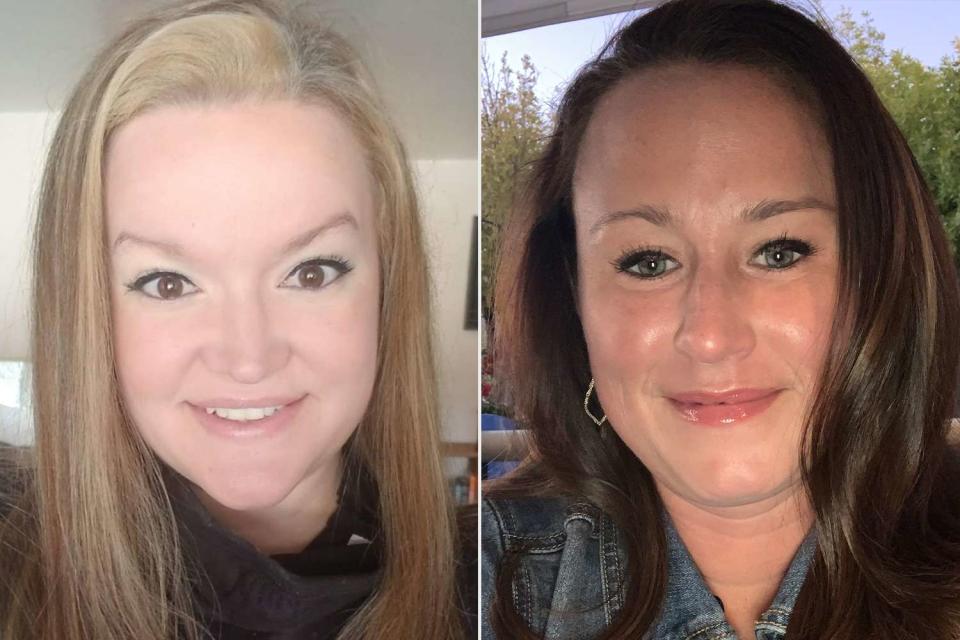
Courtesy of Missy Mendo;Amy Over
Missy Mendo (left) and Amy Over in 2024.For two survivors of the 1999 Columbine High School shooting in Littleton, Colo., the painful memories never go away.
Twenty-five years ago today, on April 20, 1999, two teenage gunmen opened fire inside the school where 14-year-old Missy Mendo was a freshman and 18-year-old Amy Over was a senior. The shooting claimed the lives of 12 students and one teacher, and injured 24 others. At the time, it was the deadliest school shooting in U.S. history.
Now mothers, both survivors grapple with the anxiety that comes with sending their children to school.
For Mendo, now 39, the trauma of the massacre came flooding back when she enrolled her daughter for pre-kindergarten in May 2022 — the same day she saw the news of the mass shooting at Robb Elementary School in Uvalde, Texas, where 19 students and two teachers were killed.
“I remembered seeing how long it took for somebody to get inside our school,” Mendo tells PEOPLE. “Watching that go down while I was filling out paperwork with my kid was just the stuff that nightmares are made out of.”
On the day of the Columbine shooting, Mendo was physically unharmed, but she remembered the shooters firing at her and several other students who had fled to a park across the street.
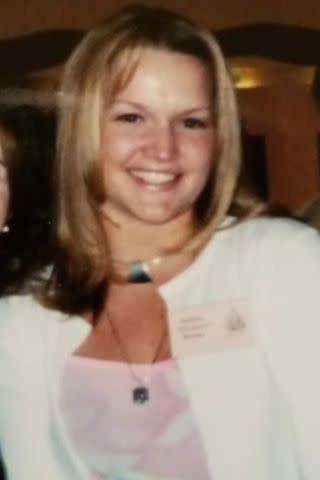
Courtesy of Missy Mendo
Missy Mendo at age 14 in 1999.So, when she became a mother and realized she would eventually have to send her now 5-year-old daughter to school, she wanted to avoid projecting that fear onto her and allow her to have a normal school experience.
“One of the things I had learned through therapy was, ‘Am I having anxiety about putting my kiddo in school because I'm a survivor? Or am I having anxiety about putting my kid in school because every parent in America is scared to put their children into a school system?’ Just breaking those things down in my brain really helps to process,” Mendo says.
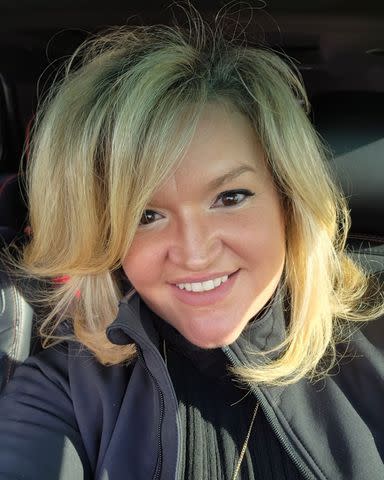
Courtesy of Missy Mendo
Missy Mendo in 2024Mendo says she’ll talk to her daughter about what she went through when “the time is appropriate and the situation is appropriate."
Related: How to Talk to Your Kids About Gun Violence in the Wake of the Uvalde Elementary School Shooting
For Amy Over, now 43 and a mother of four, that conversation has already happened with her two oldest children, who went to their senior prom on April 19, one day before the 25th anniversary of the Columbine massacre.
“I have an 11-year-old son, and he's starting to ask what happened to me, so I think that that's probably something that him and I will navigate together,” Over tells PEOPLE. “And he knows that something bad happened to mom when I was 18 years old. Yeah, he knows, but he doesn't know the extent of my story, whereas my older kids know what happened to me.”
Over describes her feelings about her son and daughter, both 18, attending senior prom as bittersweet, since she went to her own senior prom just days before the shooting. She called it a “full circle moment" and says she just wants them to have a great night.
“I just remember it being just a beautiful, happy time, just a fun night with my friends,” Over says about her own prom. “And I guess the saddest part of it is that I'm just not that same girl that I was 25 years ago.”
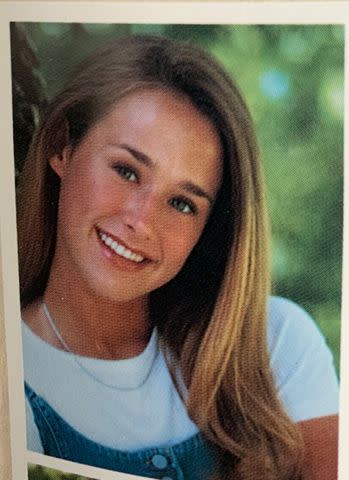
Courtesy of Amy Over
Amy Over at age 18 in 1999.Over says she “lost her innocence” that fateful day when she hid under a cafeteria table as shots were being fired. While she got out “relatively quickly,” she credits teacher and coach Dave Sanders — who was killed in the shooting — with saving the lives of many students by telling them when to run.
“I went into his classroom the morning of and gave him a hug and told him, thank you,” Over tells PEOPLE. “And we just kind of hugged and I said, ‘See you later, coach,’ and that was my last time talking with him. But I am so grateful that I had that moment with him, that's something that I will cherish for the rest of my life.”
In the years that followed, she grappled with her own fear of going back to school. After an emotional televised graduation at which she was still grieving, Over didn’t use her college basketball scholarship. Instead, she later went to a local community college where she obtained her associate's degree. Then in 2015, she finally got her bachelor’s degree.
“I had a hard time sitting in class and I had a hard time feeling comfortable and safe, so I didn't go to school until later on in life,” she says.
Related: Students Walk Out of School to Protest Gun Violence on Anniversary of 1999 Columbine Massacre
On the 10-year anniversary of the shooting, Over had a panic attack about sending her daughter to school.
Want to keep up with the latest crime coverage? Sign up for PEOPLE's free True Crime newsletter for breaking crime news, ongoing trial coverage and details of intriguing unsolved cases.
“It took years to not have panic attacks and I had to get on medication, I had to get my mind right, because I wasn't well,” Over tells PEOPLE. “It all stemmed around my daughter going to school and her safety.”
Over credits the support of the Columbine community, her husband of 24 years, Curt Over, and other mass casualty survivors for helping her get to a point today where she feels peace and hope for the future.
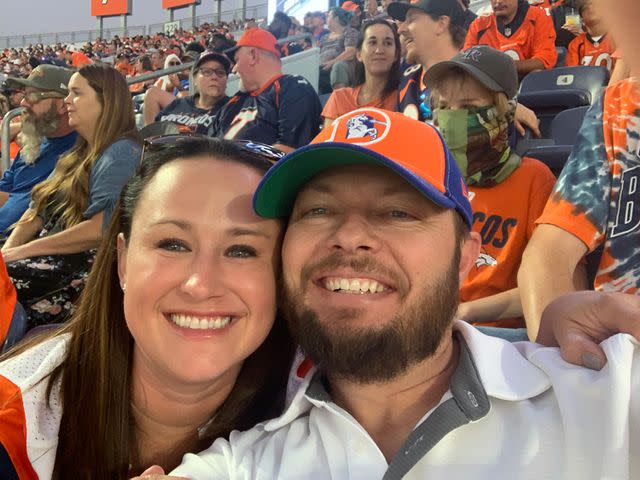
Courtesy of Amy Over
Amy Over with her husband Curt Over.Whether it’s through Mendo’s role as the director of outreach for The Rebels Project, or Over’s position as the founder of Survivors Path, both women are now openly sharing their stories and working to improve mental health and recovery for other trauma victims.
Says Over, “It's about focusing on, ‘If you've gone through something like this, just know you're not alone, there are resources out there, there's support systems out there.’ And I think that is how I cope.”
For more People news, make sure to sign up for our newsletter!
Read the original article on People.


